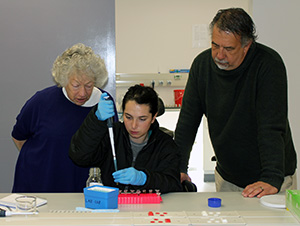Latest News Archive
Please select Category, Year, and then Month to display items
28 October 2024
|
Story Zingaphi Mdletshe
|
Photo Supplied
 Kovsie ACT volunteers undergo leadership and skills training, preparing them to engage in community service and develop sustainable solutions to societal challenges beyond university life.
Kovsie ACT volunteers undergo leadership and skills training, preparing them to engage in community service and develop sustainable solutions to societal challenges beyond university life.
The University of the Free State’s (UFS) Kovsie ACT office continues to foster a spirit of humanity among students through a leadership and skills development training initiative that is aimed at not only developing them as volunteers but also as conscientious individuals who understand the value of helping others.
“The leadership and skills development training is a platform that the ACT office utilises to ensure that volunteers are equipped with the necessary skills needed to fulfil their duties as Central ACT Committee members, thereby facilitating a smooth term,” said Teddy Sibiya, Senior Assistant Officer at Kovsie Support Services. “We aim to impart knowledge that will be beneficial during their term and beyond their involvement with the ACT office.”
Touching on how the training aligns with the broader goals of the Kovsie ACT Volunteer Programme for the term 2024/2025, Sibiya emphasised that sustainability has always been at the heart of Kovsie ACT and that their activities provide opportunities for students to engage in community service and participate in environmental initiatives to assist civil society organisations. The programme also encourages students to become active global citizens by addressing transnational issues such as food insecurity and socio-economic challenges.
“I am excited about the opportunity to be part of a movement that influences not just the lives of students but also reaches beyond the university, promoting innovative and sustainable solutions on a larger scale,” said Raylene Bussack, a Central ACT Committee volunteer. “My goal is to inspire and empower others to join us in this vital work to make a lasting difference together.”
In addition to leadership training, Kovsie ACT offers various programmes designed to enhance students' skills in areas such as communication, teamwork and project management. These skills are essential for their roles within Kovsie ACT and for their future careers. By participating in community service projects, students build valuable relationships and gain practical experience that will benefit them upon graduation. The initiative ultimately aims to create a culture of giving back among students while enriching their university experience.
Monkey research attracts international attention
2016-07-11

Prof Trudy Turner from the University of
Wisconsin-Milwaukee and Prof Paul Grobler
from the Department of Genetics at the
University of the Free State, together with one
of the students researching monkey genes.
Photo: Siobhan Canavan
For this year’s Summer School programme, Prof Paul Grobler, from the University of the Free State Department of Genetics focuses on research about the conflict between monkeys and humans in areas where monkeys are regarded as problem animals.
Global expert part of research
This year, Prof Grobler is hosting a group of students and lecturers from the United States of America (USA). The group includes Prof Trudy Turner from the University of Wisconsin-Milwaukee (UWM), a global expert on vervet monkeys. She has been working with the Department of Genetics at the UFS for the past fifteen years, and has also been appointed as an Affiliated Professor in the department.
“The Summer School programme is an opportunity for the American Primatology students to gain practical experience in Africa,” says Prof Grobler.
International interest in Summer School
This year’s Summer School programme involves four lecturers and nine students. The lecturers are from the University of Wisconsin-Milwaukee (UWM), the University of California, Los Angeles (UCLA), Boston University, and Central Washington University.
“We use the genetic information to determine
how monkeys historically infiltrated the
different areas in South Africa.”
This year’s focus is on the genetic structure of the monkeys in South Africa, and research that is being done on the differences and similarities in monkeys from different areas. “We use the genetic information to determine how monkeys historically infiltrated the different areas in South Africa,” says Prof Grobler.
Local nature reserve acting as host
The group will perform field work, including observing monkeys in the Soetdoring Nature Reserve, as well as laboratory work in the department, where they will be assisted by two laboratory technicians.
Two years ago, Prof Grobler and his department tested this idea on a smaller scale, and now they hope to make this a regular event.